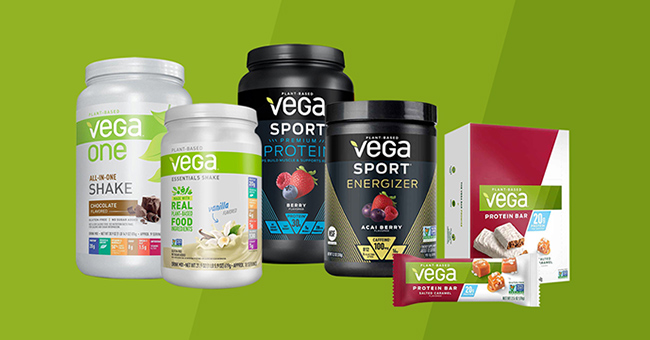Today yogurt and dairy conglomerate Danone announced it had sold plant-based nutrition company Vega to private equity firm WM Partners. Terms of the deal were not disclosed.
What Is Vega?
Founded in 2004, Vega was one of the first nutrition brands to focus on plant-based formulations, while also targeting a mainstream market. In 2011, private equity firm VMG invested in the Vancouver-based company, which was subsequently acquired by plant-based dairy brand WhiteWave in June 2015 for $550 million. At the time, WhiteWave reported Vega was still in the “early stages of its growth cycle” with net sales of approximately $100 million over the trailing twelve months with over 30% growth in sales. WhiteWave was, in turn, acquired by Danone in 2017.
For the most part, Vega has stuck to a core product line of protein powders and bars. Though the company also sells ready-to-drink nutritional shakes and a hydration powder, other attempts to diversify its offerings, such as a Vega branded protein yogurt launched in 2019, have not fared as well and been discontinued.
With similar goals of diversification, earlier this year the company launched a new Hello Wellness line. Though also a powder format, the company has positioned the products as “blender free smoothies.” Available in more creative flavors such as Choco Cinnamon Banana, Vanilla Cappuccino, and Raspberry Blackberry, each SKU offers a functional benefit (brain health, gut health or energy) combined with 15 grams of protein.
Why did Danone Sell Vega?
The sale wasn’t unexpected. The Covid-19 pandemic strained supply chains and changed consumer shopping habits — especially around on-the-go snacking and performance-focused nutrition — and under pressure from investors, in October 2020 Danone announced it would undergo a strategic portfolio review. Vega was one of the first brands on the list.
“The smaller brands were everything that counted five years ago in the food revolution,” Emmanuel Faber, then Danone Chairman & CEO, said on the company’s third quarter earnings call. “Very clearly, they will continue to have a role, but that cannot be the same role.”
Farber also noted that Vega had a “difficult moment” in transitioning its range to organic.
“We’ve been reworking this for the last 18 months, but there’s the same question. It’s a great category. It’s a great brand,” Farber said. “But are we sure that it can reconnect and move the needles for our teams at the moment, where North America has so much else to do, that it’s actually worth being us the best owner of that great asset?”
Faber himself was ousted from Danone in March of this year. Just last week the former executive shot back at the company’s board, stating that pressure from activist investors had led board members to make poor decisions about the business.
What is WM Partner’s goal?
Under its HPH II Investments Master Fund, WM Partners has been steadily acquiring health and wellness food and beverage companies. Though the firm, which is based in Florida, is focusing on brands within the functional foods, natural personal care and natural over-the-counter remedies subsectors, it largely has acquired powder brands for its most recent fund. WM acquired hydration brand Ultima Replenisher in 2019, and in 2020 acquired collagen mix Great Lakes Gelatin, matcha tea brand Jade Leaf and superfood and tea brand Feel Good Organics (FGO).
WM’s ultimate goal, the company has previously said, is to consolidate multiple “complementary” brands into several holding companies and, after growing the businesses, then sell the entities to strategic buyers.
“We are excited to work with Vega, the pioneers and leaders of the plant-based nutrition industry,” Jose Minski, co-founder of WM Partners, said in a release. “And [we] look forward to implementing our operational playbook to create additional value.”
